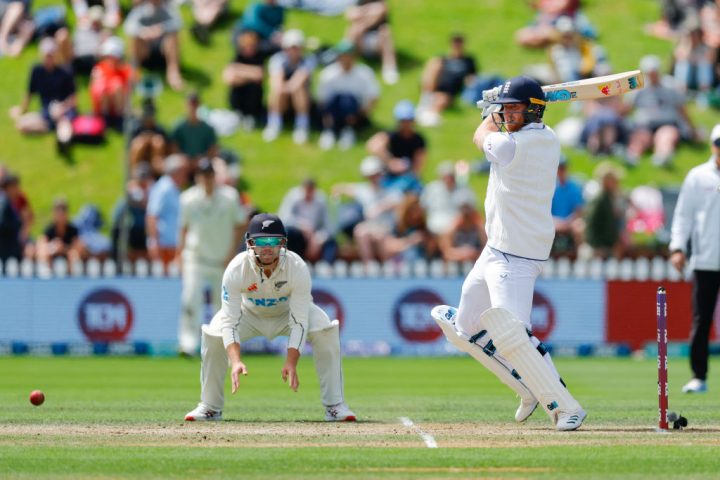Test cricket should be in its prime. England is the most aggressive team in history, India and Australia are uncommonly good, and New Zealand has just played two of the most exciting matches of all time. Yet from Marylebone to Melbourne to Mumbai, administrators are sabotaging cricket’s finest form.
Every cricket lover knows that the charm of the five-day format relies on pitches that provide a balance of power between bat and ball. Too many pitches this winter failed to meet that basic requirement. Australia played South Africa on an overgrown Queensland meadow and won within two days.
The collateral damage of fitting in another men’s competition is that the Ashes will become a fast-food binge
Their away series against India, who are the hardest team to beat when they’re playing at home, promised a classic. Instead, it was tawdry. India produced pitches that were so spin bowler-friendly that each of the first three matches was over in three days. Then, in the fourth test, when India only needed a draw to win the series, they produced a pitch so good for batting that it was unlikely either team could take enough wickets to claim victory.
The worst pitch of all was in Rawalpindi, where Pakistan hosted England on a surface that was a batting paradise. Only England’s ultra-aggressive approach and Ben Stokes’s remarkable captaincy turned what Pakistan had apparently hoped would be a boring draw, into a thriller.
These sorts of pitches are meant to be disincentivised by the International Cricket Council’s demerit points system, whereby a ground that receives five points in five years is temporarily banned from hosting test matches. Laughably, both India and Pakistan successfully appealed and had points rescinded.
The pitches will be much better this summer when Australia tour England for the Ashes. This is the most iconic contest in test cricket, but instead of affording the Ashes pride of place in the summer schedule, the England and Wales Cricket Board (ECB) are compressing it.
This year (and, one assumes, going forward) the five Ashes matches are going to be squashed into six and a half weeks. That means there’s no chance that the fastest bowlers – England’s Mark Wood and Jofra Archer – are going to play all of them. Wood and Archer – the most exciting sights in the sport – are going to have to be rested and rotated during cricket’s greatest series.
If that weren’t enough, almost all of the Ashes is going to be played during school term time. How are the next generation going to be inspired to watch test cricket if they’re in double maths?
The most plausible answer is that the ECB wants young people to be inspired by its Frankensteinian creation, The Hundred, which takes place entirely during school holidays. The women’s Hundred has done great things for cricket, but the collateral damage of fitting another men’s competition into the overcrowded summer is that the Ashes will become a fast-food binge.
This summer is just the beginning, and the future looks even bleaker. The international schedule agreed for 2023-2027 makes test cricket a format preserved for Australia, England and India, and occasionally lent to so-called lesser nations, such as the current world test champions, New Zealand.
The irony is that, as an ‘entertainment product’, test cricket has probably never had more potential. Across the world we have a golden generation of fast bowlers and several of the best batsmen ever. But unless administrators cast aside narrow-minded national interests, test cricket will shrivel. Summer 2023 may herald the end of cricket as we love it.
Got something to add? Join the discussion and comment below.
Get 10 issues for just $10
Subscribe to The Spectator Australia today for the next 10 magazine issues, plus full online access, for just $10.



















Comments
Don't miss out
Join the conversation with other Spectator Australia readers. Subscribe to leave a comment.
SUBSCRIBEAlready a subscriber? Log in